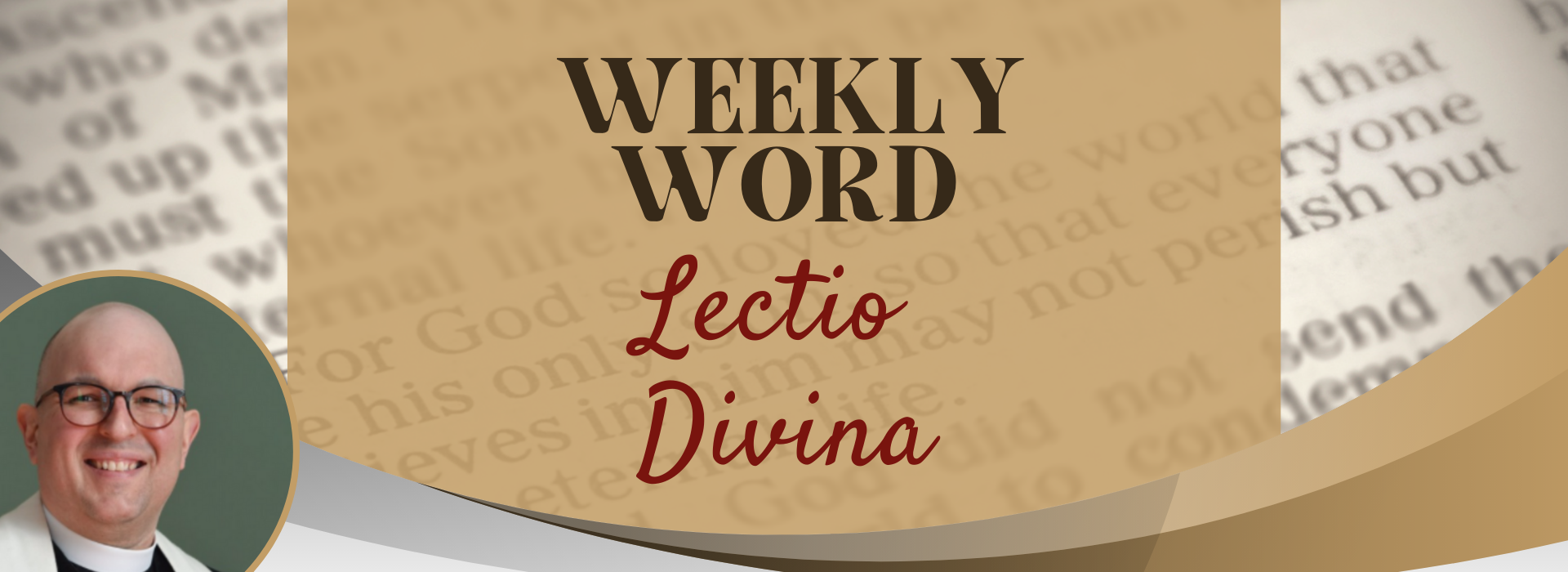Most of the year, I tend to preach from the recommended scripture readings from the Revised Common Lectionary (RCL). As some of you may know, the RCL is a three-year cycle of scripture readings that covers most of the major (and some relatively minor) scriptural passages, stories, and themes of the Bible. Each Sunday, the RCL suggests four different readings (or “lections”): Old Testament, Psalm, Epistle, and Gospel. Usually, the four suggested readings have a common thread or theme that can be tied together and then explored through additional liturgy, hymns, and prayers.
The church began assigning particular readings to certain days way back in the 4th Century, and, over the years, this list of readings has been revised over and over. Our present “Revised Common Lectionary” is the “revised” version of several lists of readings that date back to 1969, 1974, and 1983. The RCL was finalized and publicly released in 1994 and is currently used by Roman Catholics, Lutherans, Episcopalians, Presbyterians, Methodists, and many others.
So, on any given Sunday, because of the calendar and the set of readings in the RCL cycle, the scripture passages that are read and preached in worship in many churches across our country (as well as other countries) were actually chosen for that day over 30 years ago.
As Presbyterians, we believe the Holy Spirit is always at work when it comes to the ways we seek to understand Scripture. Very often, the Holy Spirit is at work helping to find connections between the scriptures and the present day.
For example, this year in the RCL is “Year C,” the year that many of the Gospel Readings are from the Gospel of Luke. Last Sunday, there are those who may have noticed a parallel between the Gospel reading from Luke 4 about a sermon Jesus delivers (and the negative reaction it receives) and a particular story from the news about a sermon delivered at the National Cathedral in Washington DC which offered a moral challenge to the nation (especially to those who have been elected to lead us) – a sermon that was not universally well-received, either.
Is it okay for the scriptures (and sermons preached on the scriptures) to challenge us?
According to Second Timothy 3:16 (which is part of the RCL Epistle reading from Year C, Proper 24), “All scripture is inspired by God and is useful for teaching, for reproof, for correction, and training in righteousness. . .” Now, I don’t know about you, but the whole “reproof” and “correction” aspects of scripture aren’t necessarily the qualities I willingly seek out in my own devotional life. And yet, if I am seeking to be continually guided by the scriptures, some reproof and correction are necessary for me to draw closer to the teachings and example of Jesus to be trained in righteousness.
If I’m reading it correctly, scripture can provide a pretty clear plumb line by which my own life, thoughts, behavior, and heart can be measured. When I am seeking to read scripture in such a way that – through scripture – the Holy Spirit is training me in righteousness, I know that some honesty and humility are necessary. I will often fall short in this department. I also know that I’m not alone when it comes to falling short.
Thankfully, even when I fall short, scripture also teaches me that there are some clear signs of hope for me – and for all the world. The key is not giving up on this hope, even when I am reproved and corrected and seeking to live rightly before God.
God is loving and merciful, still, and this loving mercy is the plumb line by which my own love and mercy are measured. As a pastor, part of my task is to share the hope of God’s love and mercy, even as I remind myself and others of the plumb line of love and mercy that God holds up to us.
I want to encourage you to do some Lectio Divina and some “Holy Reading” of scripture this week using the lectionary passages. You will find them listed below. Practice reading each passage several times and listening for several things:
Read the passage and pay attention to any words or phrases that catch your attention or leap out of your mind.
Read the passage again and ask, “What does this passage make me think about in my own life? Of what experiences from my own life does it remind me? What connections can I make between these ancient words and the world today?”
Read the passage a third time and ask, “What is God saying to me, to the church, to our nation, and our world?”
Maybe, just maybe, with some humble hope on our part and the help of the Holy Spirit, the scriptures can teach us something, reprove and correct us in the ways that we need, and train us in righteousness. May it be so, with God’s help. . .
See you in church!
Grace and Peace,
John
Prepare for Worship
This Week: “To Be Prepared (Speaking the Word of God)”
- Read Jeremiah 1:4-10
- Read Psalm 71:1-6
- Read 1 Corinthians 13:1-13
- Read Luke 4:21-30
- Read or sing Hymn # 177 – “I Will Come to You”

